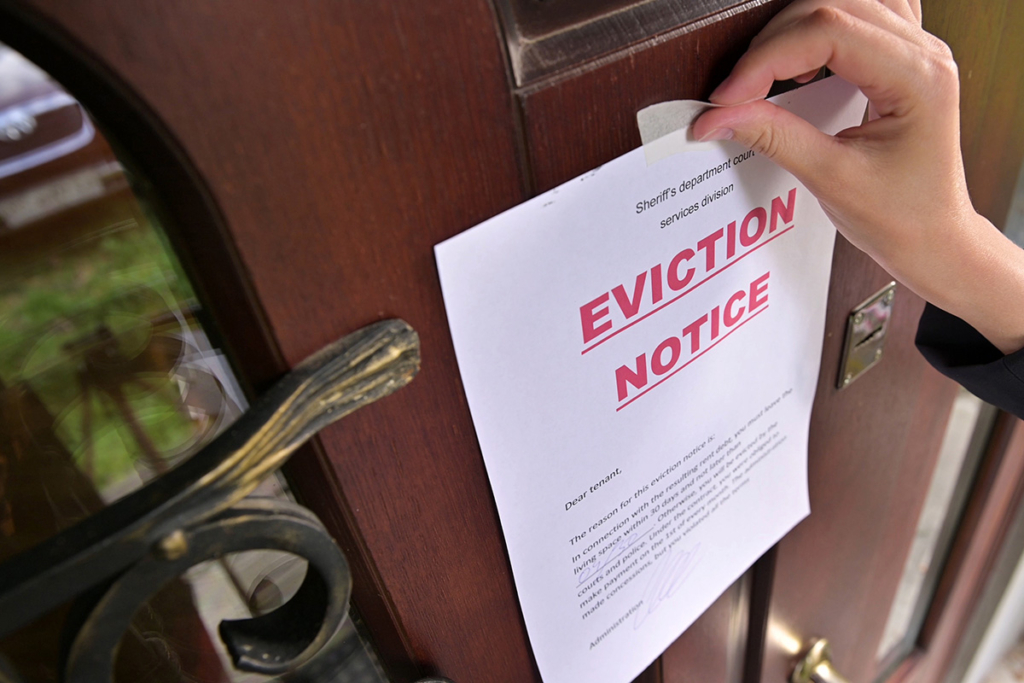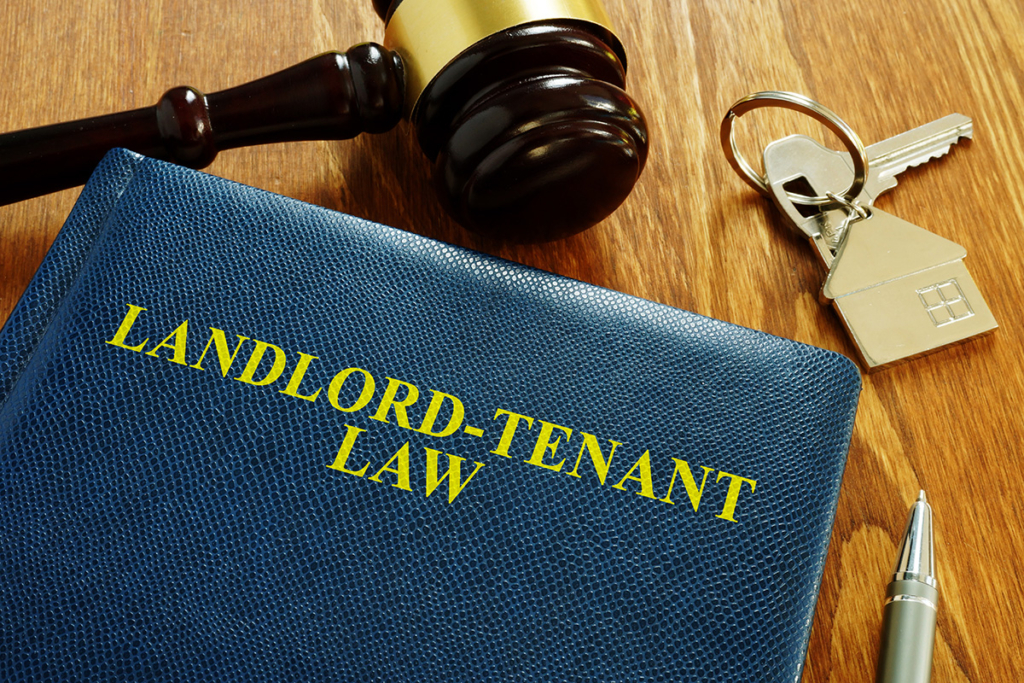A Tenant’s Guide to Eviction Notices
As a tenant, it's important to understand eviction notices and how they affect your rights under the Arizona Residential Landlord and Tenant Act (ARLTA). An eviction notice is a formal legal document from your landlord, typically issued for lease violations or to end your tenancy. ARLTA outlines strict requirements for how these notices must be handled.
At HOM, we partner with tenants, landlords, and service agencies to mediate disputes, provide resources, and help prevent an eviction whenever possible.
Best Practices for Tenants
- Communicate with HOM: Share all eviction notices with HOM so we can mediate with your landlord, connect you with your care team, or help with housing transitions.
- Avoid Conflict: Stay calm and professional when addressing issues with your landlord. HOM can help facilitate productive communication.
- Verify Payments with HOM: If you receive a 5-day notice for nonpayment, contact your HOM Housing Specialist to confirm payment status. We can verify our portion of the rent and help resolve any disputes.
- Document Everything: Keep records of rent payments, lease agreements, and any actions you take to address violations (e.g., photos, receipts, or emails).
- Act Quickly: Respond to notices within the given timeline to avoid escalation to court. Contact HOM for support as soon as you receive any notice.
- Know Your Rights: Understand ARLTA protections, such as defenses against improper notice, retaliation, or discrimination.
✅ Tip: Visit the Arizona Judicial Branch Eviction Actions Portal for official resources.

Receiving an eviction notice doesn't always mean immediate removal; tenants have options and legal protections in Arizona.
Types of Eviction Notices
In this useful guide, we'll walk you through the main types of eviction notices — 5-day, 10-day, 30-day, and immediate notices for irreparable breaches — and outline the steps you should take if you receive one. We'll also discuss a few notices that tenants can issue to landlords to protect their interests as well.
5-Day Eviction Notice
What It Is: A 5-day eviction notice is issued if you haven't paid rent on time or if there's a health or safety violation, such as unsanitary conditions. The notice states that you have five calendar days to pay the rent owed, fix the issue, or vacate the property. In Arizona, there's no mandatory grace period, and weekends or holidays don't extend the timeline.
What to Do: If you receive this notice, contact your HOM Housing Specialist immediately to verify payment status or discuss the health/safety issue.
- Payment Concerns: If you're in our housing assistance program, HOM processes part of your rent, and a perceived nonpayment might be due to a processing delay. If you have a tenant portion of rent, confirm those payments were received by your landlord. You may also request a copy of your tenant ledger from your landlord or property manager to review payments and balances.
- Health/Safety Concerns: HOM can connect you with your care team to resolve the issue quickly.
Paying the amount owed or fixing the violation within five days can stop the eviction process.
Key Tip: Keep records of all payments and communications with your landlord or HOM. If you believe the notice was issued in error, inform HOM immediately so we can mediate and confirm payment status to avoid unnecessary disputes.
✅ How to Find Your HOM Housing Specialist.
⚠️ Important: All notices must be delivered properly (in person, certified mail, or posted with a mailed copy) to be valid. If you believe a notice was delivered incorrectly or is unfair, contact your HOM Housing Specialist to review your situation.

Understanding an eviction notice is key; tenants should contact HOM or legal aid immediately to explore options.
10-Day Eviction Notice
What It Is: A 10-day eviction notice is issued for lease violations, such as having an unauthorized occupant, causing property damage, or other breaches (not related to rent or health/safety). There are two types: a first notice gives you 10 calendar days to fix the issue, while a second notice for the same or similar violation within six months can lead to eviction even if you fix it.
What to Do: Review the notice carefully to understand the alleged violation. If you can correct it (e.g., removing an unapproved pet), do so within 10 days to avoid eviction. In any case, it is best to contact HOM immediately to discuss the issue. We can mediate with your landlord and care team to find solutions, such as clarifying lease terms or providing support to address the violation.
Key Tip: Document your efforts to fix the issue, such as photos or receipts, and share them with your HOM Housing Specialist and your landlord. If you believe the notice is unfair, let your Housing Specialist know so we can help resolve the dispute.
10-Day Notice Issued by a Tenant
What It Is: Under the Arizona Residential Landlord and Tenant Act (ARLTA), tenants have the right to issue a 10-day written notice if their landlord fails to make necessary repairs. This notice tells the landlord they have 10 calendar days to fix the problem. For serious health or safety issues, a shorter 5-day notice may apply.
What to Do:
- Write a 10-Day Notice: Clearly describe the repair needed and give it to your landlord in writing (Also, give a copy to your Housing Specialist and keep a copy for your records).
- Wait the Full Notice Period: The landlord has 10 days to correct the issue (or 5 days if it affects health/safety).
- Take Action if Not Fixed: If the repair is still not done, you may hire a licensed contractor and deduct the repair cost from your next rent payment (within ARLTA's cost limits).
Key Tip: Always document everything. Keep a copy of your written notice, take photos of the problem, save contractor receipts, and track communication with your landlord. If the landlord disputes your actions, this proof will protect you. Whenever possible, consult your HOM Housing Specialist or a tenant legal aid office.

If you're in our housing assistance program, HOM processes part of your rent, and a perceived nonpayment might be due to a processing delay.
30-Day Notice
What It Is: A 30-day notice is used to end a month-to-month tenancy or alter the lease terms, such as raising the monthly rent. The notice states you must vacate within 30 calendar days from the end of the rental period. Unless protected by anti-retaliation or discrimination laws, the landlord doesn't need to provide a reason.
What to Do: If you receive this notice, contact your HOM Housing Specialist. We can help you understand your options, communicate with your landlord, or explore alternative housing solutions to ensure a smooth transition. We can also confirm whether the notice complies with ARLTA and your lease terms.
Key Tip: Start planning your next steps early, such as finding new housing or discussing lease renewal with your landlord. HOM can be a valuable resource, connecting you with resources to minimize disruption.
Move-Out Notice from Tenant
What It Is: If you decide to move out of your rental, most leases require you to give your landlord written notice. The amount of notice is usually 30 or 60 days, depending on what your lease states. Providing proper notice protects your rights and helps you avoid extra charges or losing part of your security deposit.
What to Do: Check your lease to confirm how much notice you need to give. Submit your notice in writing and keep a copy for your records. If you're unsure what your lease requires, your HOM Housing Specialist can review it with you and help you prepare the notice.
Key Tip: Start planning early. Give notice on time, confirm your move-out date with your landlord, and begin exploring housing options or lease renewals as soon as possible. HOM can connect you with resources to support a smooth transition.

Knowing your rights under the Arizona Residential Landlord and Tenant Act can help you respond confidently to eviction notices.
Immediate Eviction Notice
What It Is: An immediate eviction notice is issued for severe violations, like serious criminal activity or significant property damage, requiring you to vacate immediately without a chance to fix the issue. A court process is required to enforce the eviction.
What to Do: Contact your HOM Housing Specialist immediately and provide a copy of the notice. We can engage your care team and service agencies to address the situation, explore alternative solutions, or assist with relocation if possible. Also, seek legal advice promptly to understand your rights and defenses.
Key Tip: Stay calm and avoid further conflict. We can help mediate and connect you with support to navigate this stressful situation.
Dos and Don'ts
- Do contact your HOM Housing Specialist immediately upon receiving any eviction notice to access mediation and resources.
- Do keep records of all payments, communications, and efforts to fix lease violations to support your case.
- Do respond to notices within the specified timeline (e.g., paying rent within five days or fixing a breach within 10 days).
- Do request maintenance repairs in writing and maintain a copy for your records.
- Do seek legal advice if you're unsure about your rights or believe the notice is invalid (e.g., due to retaliation or discrimination).
- Don't ignore an eviction notice, as this could lead to a court case and eviction.
- Don't assume a payment issue is resolved without verifying with HOM, especially if you're in a housing assistance program.
- Don't retaliate against your landlord, as this could weaken your case or lead to further issues.
- Don't delay contacting HOM or a legal professional, as quick action can prevent escalation.
The information in this guide is for general informational purposes only and is not intended as legal advice. For advice specific to your situation, consult a qualified legal professional licensed in Arizona.









